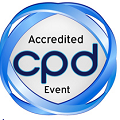
Suikinai Nobre Santos
King’s College London, London, WC2R 2LS, United Kingdom
Title: Marine ecosystems as a source of bioprospecting of microorganisms for biotechnological applicability
Biography
Biography: Suikinai Nobre Santos
Abstract
The need for new and useful drugs to promote assistance and aid in the diseases that ravage humanity is extremely relevant. Sources have been found in rare microorganisms, those from tropical marine environment is largely unexplored and might provide a rich source of the microorganism producing novel and efficent anti-infective compounds. During the last decade many microorganisms producers of novels compounds with unsual structures and equally variety of biotechnologically relevant properties (anticancer, antibacterial, antifungal, antiprotozoal, antihelmintic activities) in addition to being a souce of polyunsaturated fatty acids. The bacterial strains were isolated from samples collected sponges in the archipelago St. Peter and St. Paul (00° 55′ 02″ N, 29° 20′ 44″ W). They were subjected to screening platform for detection of natural compounds with production of exopolysaccharide matrix (EPS) and polyunsaturated fatty acids (PUFAS). The results show that marine sponges are excellent sources of producing bacteria of natural products. Two strains identified as Pseudoalteromonas tetraodonis and Pseudoalteromonas issachikonni were able to produce EPS by presence of two carbon sources (galactose and glucose), at 28 °C at pH 7. The EPS constituent monomers of the strain P. tetraodonis are galactose and fructose, and the strain P. issachikonni fructose. However, fourteen isolates present production of PUFAs, including mystic and palmitic acid 32.16%, heptodecanoic and oleic acid monounsaturated 75,41% and y- (gamma) linolenic acids. This analysis indicated that isolated were able to grow and produce essential fatty, also too, is considered as a promising source for bioprospecting of biomolecule targeting a biotechnological application.

